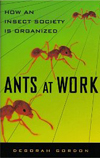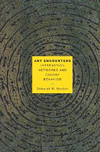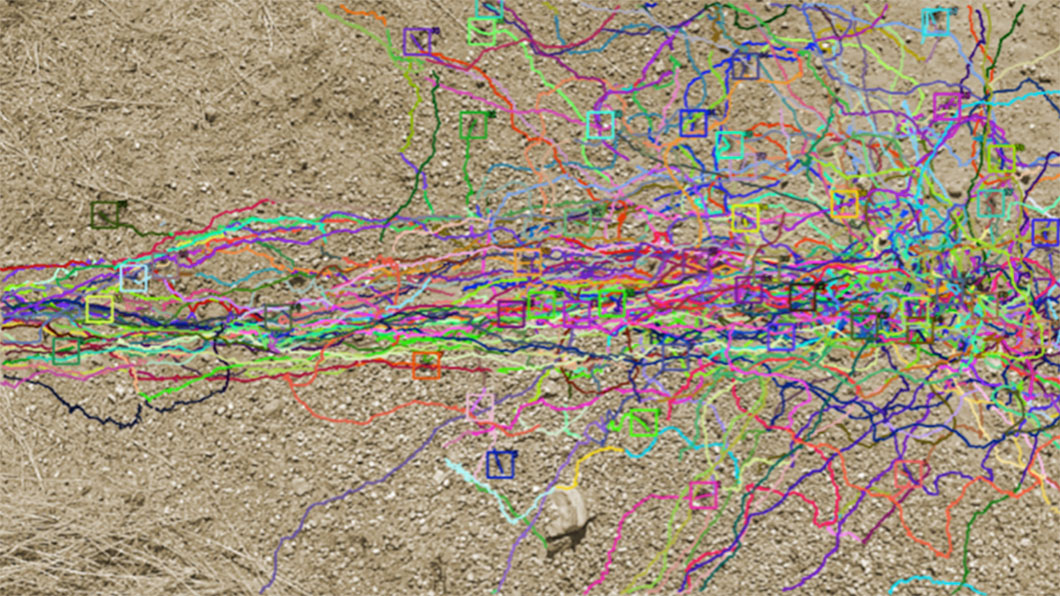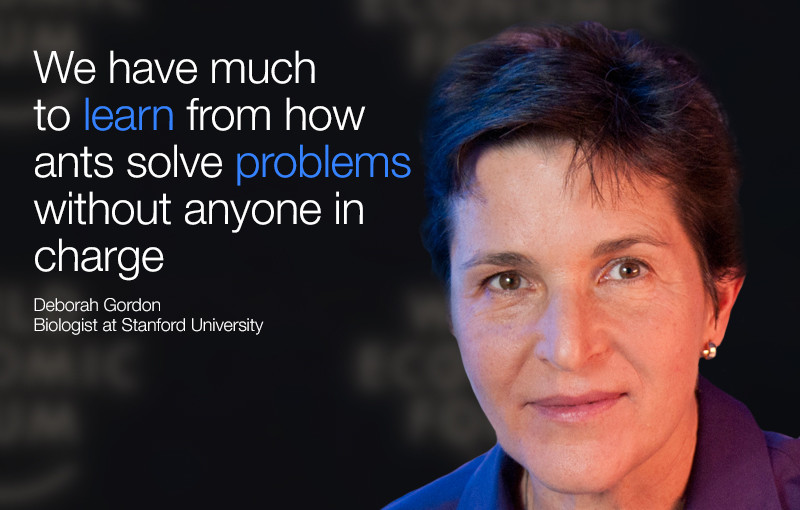Deborah Gordon: Ant Colonies as Distributed Multi-Agent Systems

 |
Talk by Deborah M. Gordon
Moderator Conference Center Building 3 |
Books by Deborah Gordon  |
Ant Colonies as Distributed Multi-Agent Systems
The regulation of foraging activity in harvester ant colonies exemplifies a complex biological system that operates as a large distributed, multi-agent network. There is no centralized control. The queen does not direct other ants; she merely lays the eggs. Ants can change tasks.
Despite lack of central control, colonies perform a range of tasks such as nest construction, caring for larvae, and foraging, in a coordinated way. Each ant responds only to local information, including its recent experience of interactions with other ants. Through brief antennal contact, one ant can assess the task of the other using odor cues. A long-term study of the behavior and ecology of harvester ants in the Arizona desert reveals that colonies regulate foraging to minimize water loss: ants spend water foraging in the desert sun and obtain water by metabolizing the fats from seeds.

The trails of harvester ant foragers are captured by image analysis. Photo: AnTracks
Foraging is regulated so as not to send out more ants than are justified by the current food supply. The ants collect seeds that are widely scattered, each retrieved by a single ant without the use of pheromone trails. The duration of a foraging trip depends mostly on how long the forager had to search to find a seed. A forager leaves the nest on its next trip in response to the rate at which it meets foragers returning to the nest with food. In this way foraging activity is adjusted to food availability without any information about the location of food. The talk will discuss the algorithm colonies use to regulate foraging, and the ecological and evolutionary consequences of variation among colonies.

Deborah M. Gordon is a Professor in the Department of Biology at Stanford where she was awarded the Walter J. Gores award for teaching excellence. She has spent the last twenty-five years deciphering the chemical, genetic and behavioral codes of ant colonies. She will discuss colony life-cycles, how interaction networks determine colony behavior, and surprising discoveries about the evolution of complex systems. Her research on the collective organization of ant colonies includes studies of the long-term demography and behavior of harvester ant colonies in Arizona, factors that determine the spread of the invasive Argentine ant in northern California, and the ecology of ant-plant mutualisms in tropical forests in Central America.
She is the author of two books, Ants at Work (2000) and Ant Encounters: Interaction Networks and Colony Behavior (2010). She has been awarded fellowships from Guggenheim and the Center for Advanced Study in Behavioral Sciences. She is interested in analogies between ant colonies and other distributed networks, and has given talks at TED 2003, Xerox Park, Google Tech Talk, Dagstuhl seminar on distributed algorithms, and at robotics and artificial intelligence conferences.
“Ants, it turns out, have much to teach us about the decentralized networks that operate in many biological systems, in which local interactions produce global behavior, without the guidance of any central intelligence or authority.” DM Gordon
